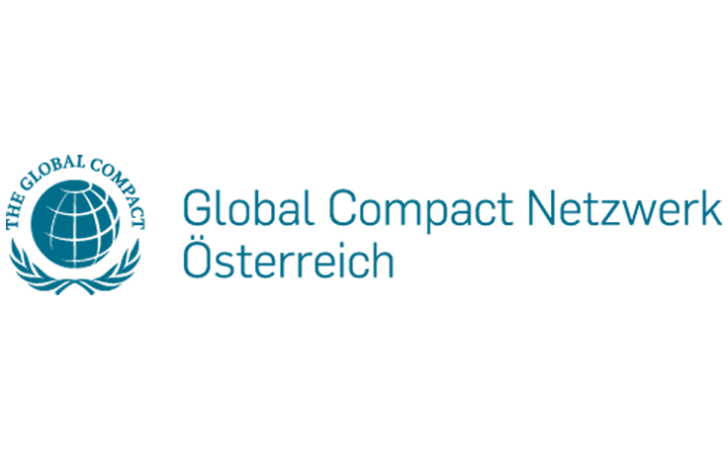Our companies hold a special position as central financial service providers. We see our role in promoting economic growth and strengthening Austria's competitiveness in a global environment. We are aware that we find ourselves in a field of tension between economic policy goals on the one hand and the implementation of sustainability and environmental goals on the other. We take this weighing of interests very seriously with our stakeholders.
Exclusion Criteria
As authorised agent of the Republic of Austria , OEKB provides guarantees for export transactions as well as for Austrian direct investment abroad. Nowadays, export guarantees are limited to non-marketable risks. Mareketable risks are covered by private export credit insurers. The liability procedure is based on the provisions of the Export Promotion Act (AusfFG) and corresponding regulations.
In the Sustainability Policy of the Export Promotion Procedure, and according to the Security Control Act and the War Materials Act, the Federal Ministry of Finance holds that the deliveries of weapons, military equipment and nuclear technology are not eligible for export support. OeKB cannot define its own exclusion criteria.
In its sustainability strategy, the Federal Ministry of Finance (BMF) has defined a concrete phase-out plan for liability commitments for projects in the fossil energy sector. The two-pronged approach aims to promote both climate change mitigation and climate change adaptation.
- Incentivising sustainable projects
For projects in the fields of renewable energy, energy efficiency or pollution prevention, enhanced liability commitment options are offered. This is done through existing instruments such as Exportinvest Green, Exportinvest Green Energy and other green products developed jointly by the BMF and OeKB.
- Phase-out plan for liability commitments for projects in the fossil fuel sector
From 1 January 2025, a multi-stage phase-out plan for liability commitments will apply to projects involving the fossil fuels coal, oil and natural gas. This covers projects along the entire value chain, from extraction and production to transport, processing and power generation in thermal power plants. The phase-out path is based on the different emission factors of fossil fuels. As coal combustion produces the highest greenhouse gas emissions per unit of energy generated compared to other fossil fuels, projects for electricity generation from thermal coal will no longer be supported as of 1 January 2025. The phase-out from oil projects will take place as of 1 January 2026, followed by the phase-out from natural gas projects as of 1 January 2030.
We assume that the affected volumes will be replaced by those from green projects (transformation into green technologies). We therefore do not expect any material impact on the asset, financial and earnings position. You can find the BMF’s sustainability strategy here.
Sustainable bonds
Our sustainability bond team – a cross-departmental and cross-bank team of experts – continuously evaluates which projects are suitable for sustainability bonds.
The Sustainable Financing Framework, with mandatory guidelines for issuing sustainable bonds and clear rules for the use of the proceeds, forms the basis for issuing green bonds, social bonds or sustainability bonds. These are bonds whose proceeds are used exclusively to (re)finance environmental and social projects or a combination of both. The framework currently defines criteria for eligible projects in nine green and three social categories, focusing on the following areas: renewable energy, energy efficiency, pollution prevention and control, environmentally sustainable resource management, sustainable water management, clean transportation, climate change adaptation, job creation, access to essential services such as healthcare or education, and basic infrastructure in developing countries. It has been externally reviewed and confirmed by Sustainalytics, one of the leading independent ESG (environmental, social, governance) and corporate governance research firms. The framework complies with market standards as well as the International Capital Market Association’s (ICMA) Sustainable Bond Standards. Learn more about our sustainability bonds here: OeKB's Sustainability Bonds.
Sustainable loans
The following support measures were implemented jointly with the BMF and are among the first initiatives realised under the Austrian Federal Government’s Green Finance Agenda:
- Exportinvest Green: Since 2019, Austrian exporting companies that make conscious investments to reduce environmental impact and contribute to sustainable environmental improvement have benefited from Exportinvest Green. Companies with an export ratio of at least 20% and an investment volume of at least EUR 2 million gain improved access to OeKB’s attractive financing conditions for green investments in Austria. Exportinvest Green
- Exportinvest Green Energy: Since 2023, preferential financing conditions have been available to companies whose investment projects serve the transition from fossil fuels to sustainable energy sources. Exportinvest Green Energy
- Beteiligung Green: Introduced in 2021, Beteiligung Green offers favourable conditions for green financing of subsidiaries of Austrian exporters abroad. Beteiligung Green
Environmental and Social Assessments
OeKB reviews every application by a company for a federal government guarantee for various risks. In its capacity as fiduciary, OeKB is obliged to accept all applications for review. This type of promotion also entails great responsibility. In the case of investment guarantees, we take our mandate just as seriously and review all transactions as part of a screening or an environmental and social assessment to find out how they affect the environment, employees and the local population. Our experience shows that many Austrian investors set a good example in the target countries – with, for example, supplier codes of conduct, extensive training programs and excellent environmental and safety standards that often far exceed local standards.
When assessing the compatibility of the environmental and social aspects, OeKB (as the Austrian export credit agency) must adhere to the Common Approaches of the OECD. The OECD also attaches great importance to climate change: A sector agreement supports exports in this area with special financing and hedging options. For more information, see the page International Frameworks in the section "OECD sector understandings: Opportunity for Austrian Companies".
show moreThe Common Approaches of the OECD regulate the procedure for project appraisal in a standardised way. This creates a level playing field within the export credit agencies represented in the OECD. Since the revision of the Common Approaches in 2016, human rights have taken on a higher weighting in the assessment requirements. Projects that do not fall under the Common Approaches due to their scope or duration but that will presumably have an environmental and social impact are evaluated separately using the “watchful eye” principle. This ensures that as many of the submitted projects as possible are evaluated for their impacts in these areas. Learn more in our section for environmental and social assessment procedures.
The issue of combating corruption and bribery is also of particular interest to the international community of the OECD. The "Recommendation on Bribery" of the OECD calls on export credit insurance agencies like OeKB to effectively combat bribery of foreign public officials in export transactions through additional measures. Hear you can learn more about OeKB's measures to combat corruption.
Standards and Certifications
The environmental and social assessment procedure refers to the following standards:
- Berne Union Guiding Principles
- IFC Performance Standards
- International Labour Standards of the International Labour Organization (ILO)
- Austrian Laws (Export Promotion Act, Export Financing Promotion Act, War Material Law, Security Control Law, Sustainability Policy Export Promotion of the Federal Ministry of Finance – BMF)
- OECD Common Approaches
- OECD Recommendation on Bribery and Officially Supported Export Credits
- OECD Guidelines for Multinational Enterprises
- UN Global Compact
- UNHCR Guiding Principles on Business and Human Rights
- Agreement of participants in the United Nations Framework Convention on Climate Change
- World Bank EHS Guidelines (Environment, Health, Safety)
- World Bank Safeguard Policies
Development Financing
The Austrian Development Bank (OeEB), as the development bank of the Republic of Austria, offers tailor-made financing solutions to private companies for economically viable and developmentally meaningful projects in developing countries. OeKB refinances projects that are economically not viable but contribute to sustainable development in selected countries based on soft loan conditions.
The strategic priorities of OeEB are the promotion of micro, small and medium-sized enterprises (MSMEs), renewable energies and resource efficiency. The focus regions are Africa, South Caucasus/Central Asia, Southeast/Eastern Europe and Central America/Caribbean.
Find out about the financing solutions and projects of the Oesterreichische Entwicklungsbank.
show moreOeEB finances projects that meet development policy criteria. They help create jobs and national income, improve access to modern infrastructure and financing, and support energy security through renewable energy projects and energy efficiency projects in particular. We pay attention to compliance with international labour, environmental and social standards: These include the "Performance Standards on Social and Environmental Sustainability" developed by the World Bank subsidiary IFC, which have established themselves as the market standard, the World Bank Group's "Environmental, Health and Safety Guidelines" as well as international conventions of the ILO (International Labour Organization).
Tourism financing
For more than 75 years, the Austrian Hotel and Tourism Bank (OeHT) has been an important and reliable partner for the tourism and leisure industry. With its comprehensive financing and support solutions, it helps drive the industry forward sustainably.
OeHT provides the tourism and leisure industry with an institution that acts as both a funding agency and a bank. Its services go beyond standardised financing and funding products. Key priorities include strengthening family- and owner-operated businesses, creating incentives for equity formation, and aligning new guidelines with an ecologically, economically and socially sustainable tourism industry. Learn more about OeHT’s sustainability and tourism support here.

Global Compact
Since 2007, OeKB has been a member of the "UN Global Compact" and the steering committee of the Austrian network for this initiative. The progress report "Advanced Level" is integrated into the sustainability report.
Contact

